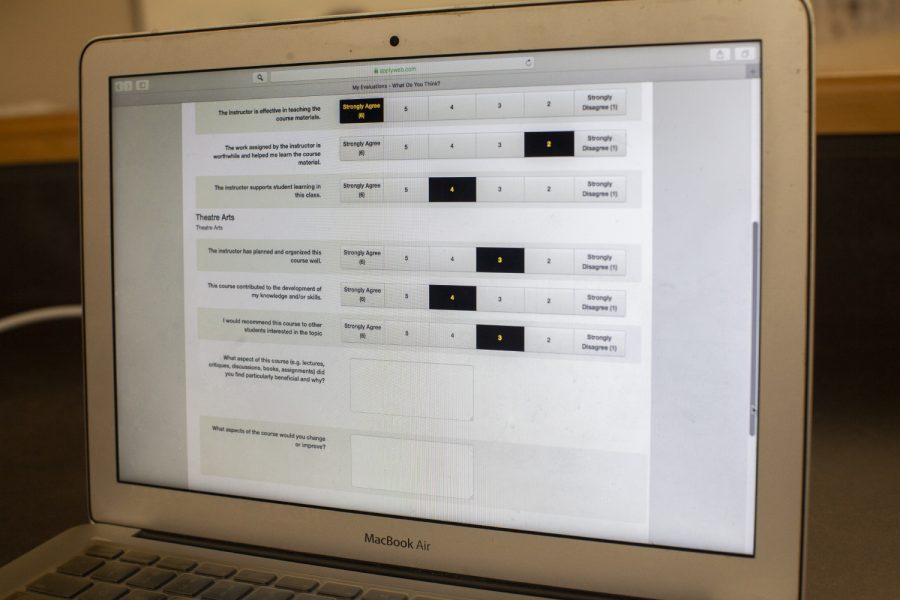UI addresses low response rates of course evaluations
As the school year comes to a close and students are reminded to complete their course evaluations, the UI has created an ACE Task Force to determine why they aren’t responding and find some possible solutions.
Photo Illustration.
May 6, 2019
It’s that time of the year when students repeatedly receive emails reminding them to fill out their ACE Course Evaluations, which allow them the opportunity to respond to the professors, TAs, and other instructors they’ve spent time with during the last semester.
Kenneth Brown, the co-chair of a University of Iowa special task force created to assess the Assessments of Classroom Environments Course Evaluations, said the goal of his committee is to improve examination of faculty to facilitate the improvement of teaching.
“One of the primary motivations that students have for filling out course evaluations is just that the teacher gets better,” Brown said. “To tell people that it’s used to hire and fire instructors seems secondary.”
While student feedback could certainly lead to a new hiring or the firing of a faculty member, Brown said, it is more helpful for faculty members to understand the effect of how they teach or for a department head to move teachers in and out of courses.
Brown said response rates have gone down in course evaluations since the UI transitioned from paper to online evaluations. As a result, the ACE Task Force was created in the spring of 2018, and Brown said the members hope to pilot solutions to the problems they’ve found by the spring of 2020.
“I think we would like a name change just to signify a break from the past,” Brown said. “We’re going to narrow the number of items, we want students to know that we’re taking this a little bit more systematically, and seriously, across college units.”
RELATED: In their own words: Are you filling out course evaluations?
He said the current proposal includes working with the Provost Office to budget for education videos that teach students what the course evaluations accomplish, request for new software, and look toward engaging with the associate deans in each college unit.
Brown said the task force is quite interested in the thoughts of students, especially in helping them identify certain needs on the current state of course evaluations. Tristan Schmidt, the outgoing UI Student Government director of academic affairs, has facilitated focus groups to survey students.
“A lot of students believe that ACE evaluations are not valuable, that they serve only the instructor and not the student,” Schmidt said. “It actually helps to determine if tenured faculty get pay raises or promotions … and whether instructors are competent in their programs.”
Schmidt said ACE course evaluations can show administration how faculty and students should be treated. There are many students who know what the evaluations do, he conceded, but even those students don’t believe their answers will have any effect.
“Students want to know how instructors are going to be reading them,” Schmidt said. “We have to remember the questions being asked, who answers the questions, and who they are evaluating. It’s really hard to determine how evaluations are equitable in treating instructors.”
For example, he said, the evaluation of a white, male instructor might look different depending on the student from the evaluation of an African American, female instructor. Primarily, Schmidt said students need teachers to encourage completion of course evaluations in class.
Annette Beck, the co-chair of the ACE Task Force, said she wants to make evaluations easier, less time-consuming, and more meaningful to students and faculty alike.
“Time, brevity, and knowing what happens with the results were key comments from students,” she said. “We listened and are trying to change the system to accommodate this for students.”






